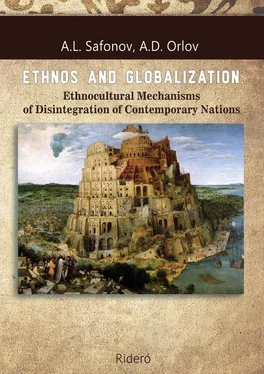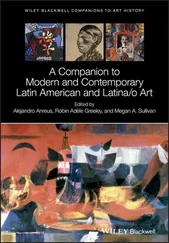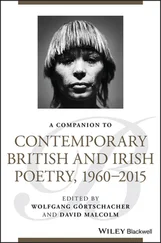At the same time, Hegel’s “spirit of the people’ is a form in which the “global spirit’ can manifest itself: “Principles of spirits of a people in the necessary continuity are themselves only moments of a single united spirit, which elevates and finishes in the history through them, understanding itself and becoming all-encompassing”. 185 185 Hegel, G. Works, V. VIII. 1935. – p. 71, 75.
Hegel’s “global spirit’ is reflected in history: “In global history, the idea of the spirit manifests itself in reality as a range of external forms, each of which finds its manifestation in an actively existing people. But this side of the existence is given in time as well as in space in the form of the natural existence and a special principle, typical of every global and historical people is also typical of it as a natural definitiveness.”
Конец ознакомительного фрагмента.
Текст предоставлен ООО «ЛитРес».
Прочитайте эту книгу целиком, купив полную легальную версию на ЛитРес.
Безопасно оплатить книгу можно банковской картой Visa, MasterCard, Maestro, со счета мобильного телефона, с платежного терминала, в салоне МТС или Связной, через PayPal, WebMoney, Яндекс.Деньги, QIWI Кошелек, бонусными картами или другим удобным Вам способом.
Thatcher, Margaret. Statecraft: Strategies for a Changing World / Trans. M. Albina Publisher, 2003. – 504 p.
Fukuyama, Francis. The End of History and the Last Man. M.: Yermak, AST, 2005. – 592 p.
Hardt, M., Negri, A. Empire / Translation from English edited by G. V. Kamenskaya, M. S. Fetisov – M.: Praksis, 2004. – 440 p.
Wallerstein, I. The End of the World as we Know it: Social Science for the Twenty-First Century / Immanuel Wallerstein. M.: Logos, 2004. – 368 p.
Bell, D. The Coming of Post-Industrial Society: A Venture in Social Forecasting. M.: Academia, 1999. – 956 p.
Giddens, A. Runaway World: How Globalization is Reshaping Our Lives. M., 2004. – 340 p.
Buzgalin, A. V., Kolganov, A. I. Global Capital. M.: Editorial URSS, 2004. – 512 p.
Delyagin, M. G. Global Crisis. General Theory of Globalization. Course of Lectures. M.: Ifra-M, 2003. – 768 p.
Inosemtsev, V. L. Democracy: forced and desired. Successes and failures of democratization on the brink of thousand years// Voprosy filosofii. 2006. №9 – p. 34—46.
Utkin, А. I. New Global Order. M.: Algoritm, Eksmo, 2006. – 640 p.
Beck, Ulrich. Power in the Global Age: A New Global Political Economy. M.: Progress-Traditsiya, 2007. – 464 p.
Bauman, Z. Globalization: The Human Consequences. M.: Ves Mir Publishing House, 2004. – 188 p.
Kissinger, H. World Order. New York: Penguin Press, 2014.
Martin, H-P., Schumann, H. The Global Trap: Globalization and the Assault on Prosperity and Democracy. Translation / Zapadnya globalizatsii: ataka na protsvetanie i demokratiyu – M.: Al’pina, 2001. – 335 p.
Stryker, R. Globalization and the Welfare State. M., 2004. Ч. Н. – p. 83—92.
Soros. G. On Globalization / O globalizatsii – M.: Praksis, 2004. – 276 p.
Drucker, P. Post-Capitalist Society. M., 1999. – p. 67—100.
Butenko, A. P. Globalization: essence and contemporary problems / Sotsialno-Gumanitarnye Znaniya. 2002. №3. – p. 3—19.
Delyagin, M. G. Globalization. Global Crisis and “Closing Technologies” // Transnational Processes: XXI Century. M.: Sovremennaya Ekonomika i pravo, 2004. – p. 24—51.
Rieger, E., Leibfried, S. Limits to Globalization: Welfare States and the World Economy. M., 2004. 4. II. p. 94—101.
Kara-Murza, S. G. Globalization and crisis of enlightenment// Transnational Processes XXI Century. M., 2004. – p. 291—293.
Kagarlitsky, B. Y. Marxism. M.: ACT, 2005. – 462 p.
Podzigun, I. M. Globalization as reality and problem / Philosophy. 2003. №1 – p. 5—16.
Pantin, V. I., Lapkin, V. V. Philosophy of historical forecast-making. Dubna: Feniks+, 2006. – 448 p.
Pozdnyakov, E. A. Nation, state, national interests // Voprosy ekonomiki 1994. №2 – p. 64—74.
Panarin, A. S. Seduction by Globalization. M., 2002. – 440 p.
Wallerstein, I. World-Systems Analysis: An Introduction. M.: Publishing House Territoriya Buduschego, 2006. – 248 p.
Braudel, F. Grammaire des civilisations / Grammatika tsivilizatsij – M.: Ves’ mir, 2008. – 552 p.
Amin, Samir. The American Ideology. M., 2005. – p. 211—219.
Amin, Samir. Political dimension // Globalization of Defiance. Translation. M., 2004. – p. 265—286.
Budanov, V. G. Methodology of synergy in post-nonclassical science and in education. PhD dissertation. M., 2007. – 56 p.
Kapitsa, S. P. Model of the Earth’s population growth // Success of physics. 1995. 26. №3 / Model’ rosta naseleniya Zemli // Uspekhi fizich. Nauk. 1995. №3 – p. 111—128.
Moiseyev, N.N.Human Being and Noosphere. M.: Nauka, 1990—p. 331
Panarin, A. S. Postmodernism and globalization: the project of liberation of property-owners from social and national responsibilities // Issues of Philosophy. 2003. №6 – p. 18—27.
Lorenz, Konrad. On Aggression. New York: Harcourt, Brace & World, 1966. Translated by Marjorie Kerr Wilson. Originally published in Austria under the title DAS SOGENANNTE BÖSE. Zur Naturgeschichte der Aggression. Viena: Dr. G. Borotha-Schoeler Verlag, 1963, p. 263.
Dawkins, R. The Extended Phenotype: The Long Reach of the Gene. M: Astrel’, 2010. – 512 p.
Cavalli-Sforza, L. L. Genes, Peoples, and Languages. New York: North Point Press, 2000. – 267 р.
Gil-White F. J. How thick is blood? // Ethnic and Racial Studies. 1999. №22 (5) – P. 789—820.
Geertz, C. The Interpretation of Cultures. M.: Rosspen, 2004. – 128 p.
Varela, F. Neurophenomenology: a methodological remedy for the hard problem // Journal of Consciousness Studies. 1996. №4 – P. 330—349.
Anderson, B. Imagined Communities: Reflections on the Origin and Spread of Nationalism. M.: Kanon Press, 2001. – 286p.
Читать дальше












